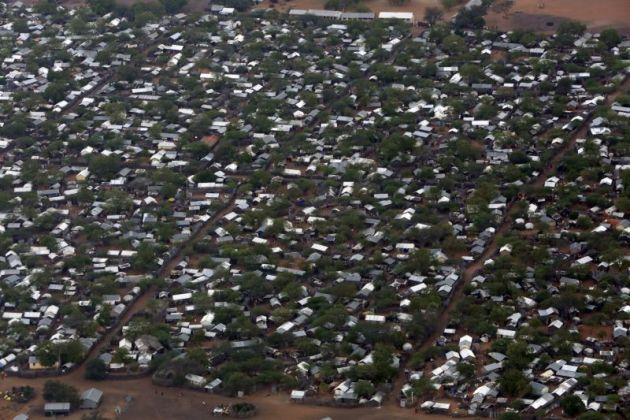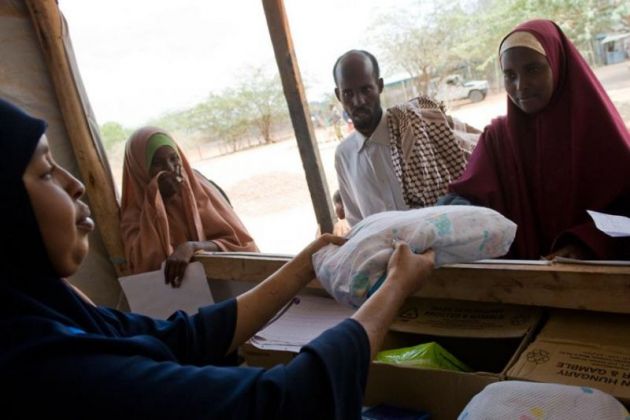Lutheran group praises judge's ruling halting closure of huge refugee camp near Somalia

It is not only in the United States where courts have ruled against the State trying to clamp down on the movement of refugees.
A court in Kenya has ruled against the government in the country that is trying to shut down a massive refugee camp that is the size of a mid-sized city.
The Lutheran World Federation has said it is "grateful that basic principles of international humanitarian law were upheld" when the High Court of Kenya ruled against the planned closure of Dadaab, the world's biggest refugee camp.
The court ruling also considers the closing of the Kenyan Department of Refugee Affairs last year unconstitutional.
Refugees, aid workers and rights groups welcomed a Feb. 9 Kenyan court ruling stalling the government's decision to close Dadaab return more than 220,000 people from Somali to their homeland which has faced decades of war.
The LWF which represents 74-million Lutherans worldwide was among 11 non-governmental organizations that last year urged the Kenyan government to reconsider its intention to both close refugee camps in the country and disband its Department for Refugee Affairs.
"Shutting down the refugee camps will mean increased protection risks for thousands of refugees and asylum seekers – [the] majority of who are women, children and unaccompanied minors," the 11 NGOs said in a joint statement on May 10, 2016.
They called on Kenya to continue to uphold the protection and rights of refugees, many of who would be prone to human rights violations.
Kenya's Interior Ministry had in a statement on May 6 cited "immense security challenges" and the slow pace of Somali refugee repatriation as factors for the decision that "hosting of refugees has to come to an end."
It said Dadaab and Kakuma camps would be closed "within the shortest time possible."
The Geneva-based LWF has worked in Kenya since 1992, first in Kakuma, and since 2008 in Dadaab working alongside other church-backed aid groups.
It provides primary education, vocational training, early childhood development, and support to people with disabilities and elderly people in the Dadaab refugee camps.
'GOVERNMENT MINISTER ACTED BEYOND POWERS'
Ministers had acted beyond their powers by ordering the closure of the Dadaab complex, Judge John Mativo, ruled, The Guardian reported.
The judge said the government's decision specifically targeted Somali refugees as an act of group persecution, he added, and was illegal, discriminatory and therefore unconstitutional.
The government of Kenyan President Uhuru Kenyatta not proved Somalia was safe for the refugees to return, Mativo said. A separate government order to shut down its refugee department was also "null and void," said the court.
Warsame Abdihakim Mohamed has lived in Dadaab since fleeing war in 1992 and said he hoped the government would comply with the court ruling.
"This is good news," said the 37-year-old, who has set up one of the largest and most popular restaurants in Dadaab's satellite Hagadera camp. "We hope that eventually, those of us who have invested in the country will be left to stay."
Margaret Akoth, who works for an education NGO in Dadaab, said she hoped the decision would encourage donors to continue supporting humanitarian efforts in the camp.
"Our morale has been low because we have been working with the threat of camp closure over our heads. Now we are a bit reassured," she said.
Human rights groups who have long opposed closing the camp, situated near the Somali border.
Amnesty International's regional director, Muthoni Wanyeki, described the Feb. 9 ruling as an historic day for refugees who were at risk of being subjected to serious rights abuses had they been returned to Somalia.
"This ruling reaffirms Kenya's constitutional and international legal obligation to protect people who seek safety from harm and persecution," Wanyeki said.
Some Kenyan officials have asserted that the al-Shabaab terror group has used the camp as a recruiting ground and as a base for launching attacks inside Kenya, though they have not provided conclusive proof.
Mwenda Njoka, a spokesperson for Kenya's interior ministry, "Our reasons for closing the camp are still valid. The camps are still a haven for terrorists. We intend to appeal the ruling."
